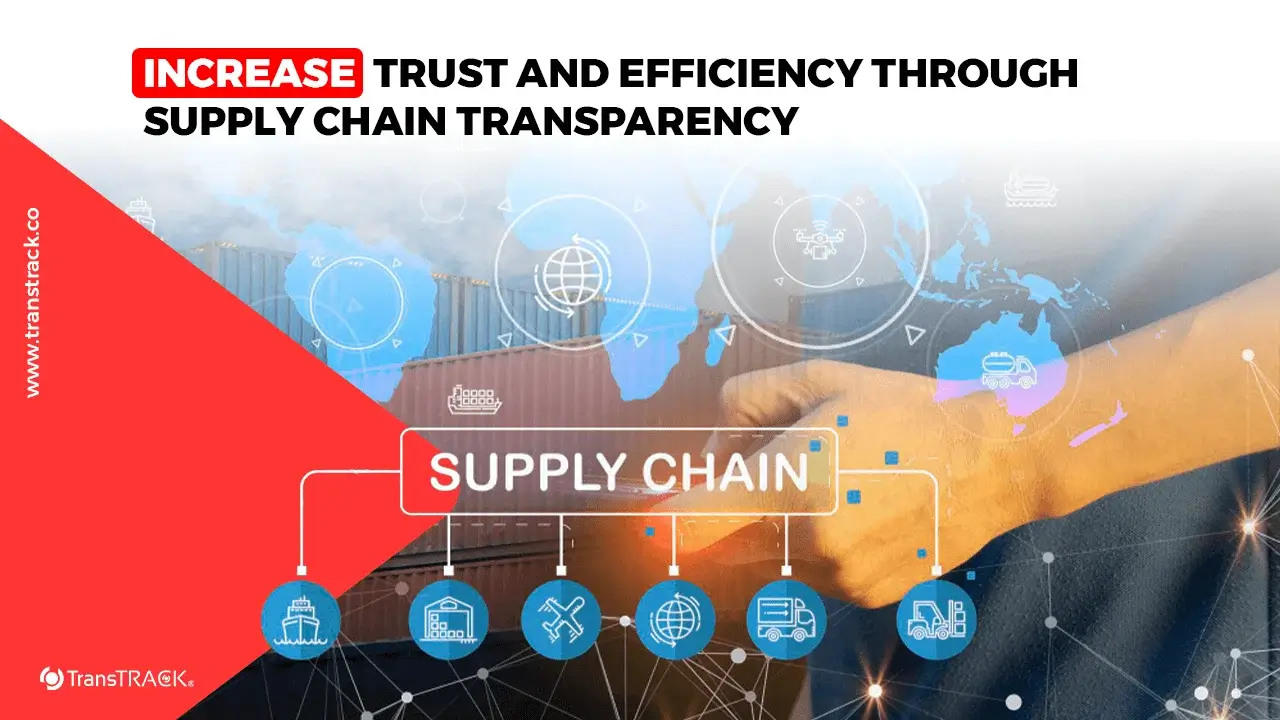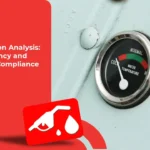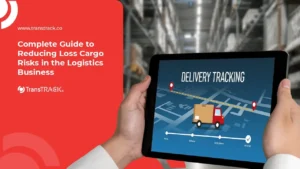Increase Trust and Efficiency through Supply Chain Transparency
Posted on September 15, 2025 by Nur Wachda Mihmidati

Companies are now facing pressure to show the origin of their products and production processes clearly. Supply chain transparency allows every step of the supply chain to be monitored in real-time, helping to reduce risk, improve efficiency and build trust with consumers and business partners. It also opens up opportunities to demonstrate ethical and sustainable practices that can be a competitive advantage. Check out this article from TransTRACK for more details!
What is Supply Chain Transparency?
Supply Chain Transparency is the extent to which a company or organization can monitor, disclose, and report on all activities, processes, and product flows from raw materials to the end consumer. In practice, this includes information about suppliers, production processes, distribution, and the social and environmental impacts of the products produced.
Business Challenges Without Supply Chain Transparency
Understanding the risks that arise from a lack of transparency in the supply chain is important so that companies can take strategic steps to maintain reputation, compliance, and operational efficiency.
Risk of Losing Customer Trust
Without transparency, it is difficult for consumers to know the origin of products and their production practices. This can decrease customer loyalty and affect long-term brand image.
Difficult to Meet Regulations & Industry Standards
Companies that do not have full visibility over their supply chain risk failing to comply with environmental, safety, or trade-related rules. As a result, companies could face sanctions or lose business opportunities.
Cost and Process Inefficiencies
Lack of transparency makes it difficult to identify operational bottlenecks and resource wastage. This makes processes less optimized and increases overall operational costs.
Benefits of Supply Chain Transparency for Companies
Having full supply chain visibility is not just about operational control, but also a strategy to build reputation, compliance, and efficiency.
Increasing Stakeholder & Business Partner Trust
Transparency gives stakeholders and business partners confidence that the company operates honestly and responsibly. This trust can strengthen long-term cooperation and partner loyalty.
Compliance
With supply chain transparency, companies can more easily ensure that all processes meet industry standards and legal regulations. This reduces the risk of sanctions and legal issues.
Operational Cost Optimization & Risk Management
Transparency helps companies identify bottlenecks, waste and potential risks in the supply chain. The result is cost efficiency and more effective risk management.
Brand Differentiation Opportunities through Ethical Practices
Transparent companies demonstrate a commitment to ethical and sustainable production practices. This adds value to consumers and can be a competitive advantage in the market.
Technology Supporting Supply Chain Transparency
Modern technology enables companies to monitor every stage of the supply chain in real-time, increasing visibility and ensuring responsible business practices.
Blockchain for Raw Material Traceability
Blockchain provides an immutable and verifiable record for every stage of production. With this, the origin of raw materials can be traced with accuracy and transparency.
IoT & Sensors for Real-Time Monitoring
IoT devices and sensors enable real-time monitoring of goods condition, location, and movement. This real-time data helps in faster problem detection and more informed decision-making.
Cloud-based Supply Chain Management Platform
Cloud-based platforms facilitate the integration of data from various parties in the supply chain. This enables better coordination, thorough data analysis, and access to information anytime and anywhere.
Conclusion
Supply chain transparency is no longer an option, but a strategic necessity for companies looking to maintain reputation, compliance, and operational efficiency. With full visibility of the supply chain, companies can increase stakeholder trust, optimize costs, and differentiate brands through ethical practices. Technology support such as blockchain, IoT, and cloud-based platforms are key to effectively realizing this transparency.
FAQ – Supply Chain Transparency
1. Why is supply chain transparency important?
Supply chain transparency allows companies to monitor the entire product flow from raw materials to the end consumer. This is important for building customer trust, complying with regulations, and optimizing operational efficiency.
2. What industries need supply chain transparency?
Almost any industry can benefit from supply chain transparency, especially manufacturing, food & beverage, pharmaceutical, automotive, and logistics. Industries with strict regulations or high reputational risk benefit greatly from transparency implementation.
3. How can companies build supply chain transparency?
Companies can build transparency by utilizing technologies such as blockchain for traceability, IoT for real-time monitoring, and cloud-based supply chain management platforms. In addition, it is important to have internal audit procedures and open communication with all business partners.
Achieving supply chain transparency is no longer just an option, but a necessity to maintain a company’s reputation, compliance, and operational efficiency. With TransTRACK’s Logistic Service Integrator, you can monitor your entire product flow in real-time, ensure regulatory compliance, and optimize costs and processes.

Take the first step towards a more transparent and efficient supply chain. Try TransTRACK’s Logistic Service Integrator now!
Recent Post
Topic :
 Bahasa Indonesia
Bahasa Indonesia









